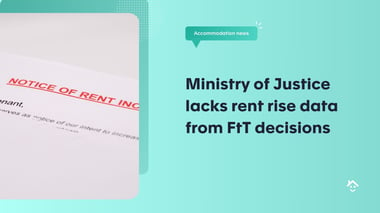The National Residential Landlords Association (NRLA) has been contacting student unions around the country in a bid to explain the impact that periodic tenancies will have on student accommodation supply.
The landlords’ organisation highlights that periodic tenancies would lead to landlords not knowing when they would get their property back so they would not be able to let their property at the beginning of an academic year.
The NRLA says the move would cause ‘chaos’ and ‘confusion’ for students who are already struggling in many university cities to find somewhere to live for their second and third year of studies.
But the move has been condemned by the National Union of Students (NUS) who says that the NRLA is trying to ‘turn students’ against renters’ rights.
‘Underclass of renters’ will be created’
The NUS says that an ‘underclass of renters’ will be created if student accommodation is exempt from periodic tenancies.
The NUS’s vice president of higher education, Chloe Field, told one online news outlet: “It’s wrong that NRLA is pushing for exemptions for students which would afford them fewer rights than other renters.
“Our research shows the cost of housing is a key driver impacting student mental health so it’s disingenuous for the NRLA to imply the greater protections secured through the bill will bring harm to students.”
The move from assured shorthold tenancies to periodic tenancies for student accommodation is part of the Renters Reform Bill which looks set to be passed into law in 2023.
The new laws will also create a landlords’ register and ban section 21 ‘no fault’ evictions.
‘Ensuring a healthy supply of homes to rent’
A spokesperson for the NRLA said: "The welfare of students is best served by ensuring a healthy supply of homes to rent.
“Recent images of students queuing to view properties is a sign that there is simply not enough accommodation to meet demand. All this is doing is leading to less choice and higher rents.”
The spokesperson went on: “The Government's plans to make all student tenancies open-ended or 'periodic' would only make it harder to find accommodation. It would mean no landlord could ever guarantee that housing would be available for students at the start of each academic year.
“This would cause chaos, confusion and anxiety for students unable to plan where they live and with who.”
‘Student housing is a special case’
They added: “Ministers have already accepted that student housing is a special case by exempting tenancies in private halls of residence from becoming periodic. The reasons for doing this in halls apply every bit as much to the wider student market.
"This is why we have reached out to 22 student unions across the country to find a solution that recognises the unique nature of the student market."
Simon Thompson, the managing director of Accommodation for Students, said: “This move by the NRLA should be welcomed by student landlords everywhere because it highlights what the impact of periodic tenancies will be on students.
“And, as we have highlighted before, the fact that purpose-built student accommodation providers will be exempt from offering periodic tenancies reveals that the government knows that moving to open-ended tenancies could be catastrophic for the student accommodation sector.
“The NUS needs to appreciate that student landlords will inevitably leave the sector if they cannot have the reassurance of getting their property back when a new academic year starts so there will be fewer properties for students to rent.”
Student landlords might be interested in a Liverpool Echo article advising students on the best ways to keep warm as temperatures plummet. While the article says that student houses tend to be colder because student landlords do not consider spending money on measures that will save energy such as insulation and double glazing, they also highlight that lots of old student houses are less energy efficient. The tips are sensible for student tenants wanting to save money by reducing their energy bills.
In better news, the Financial Times reports that student housing ‘is the bubble that won’t burst’. In the article behind the pay wall , they say that a structural supply shortfall is a boon for landlords. There’s also strong demand from wealthy foreign students and middle-class parents who will be spending on their offspring’s education. The article goes on to explain that there are various reasons why the student accommodation sector is in a mess and that things will not improve ‘any time soon’. All of this is good news for investors, but it’s not so good for students with stretched finances. The Financial Times says that the number of UK students heading to university will continue rising for the rest of this decade and that tougher rules on houses in multiple occupation (HMOs) have led to non-professional landlords leaving the sector with fewer homes for students to rent.




